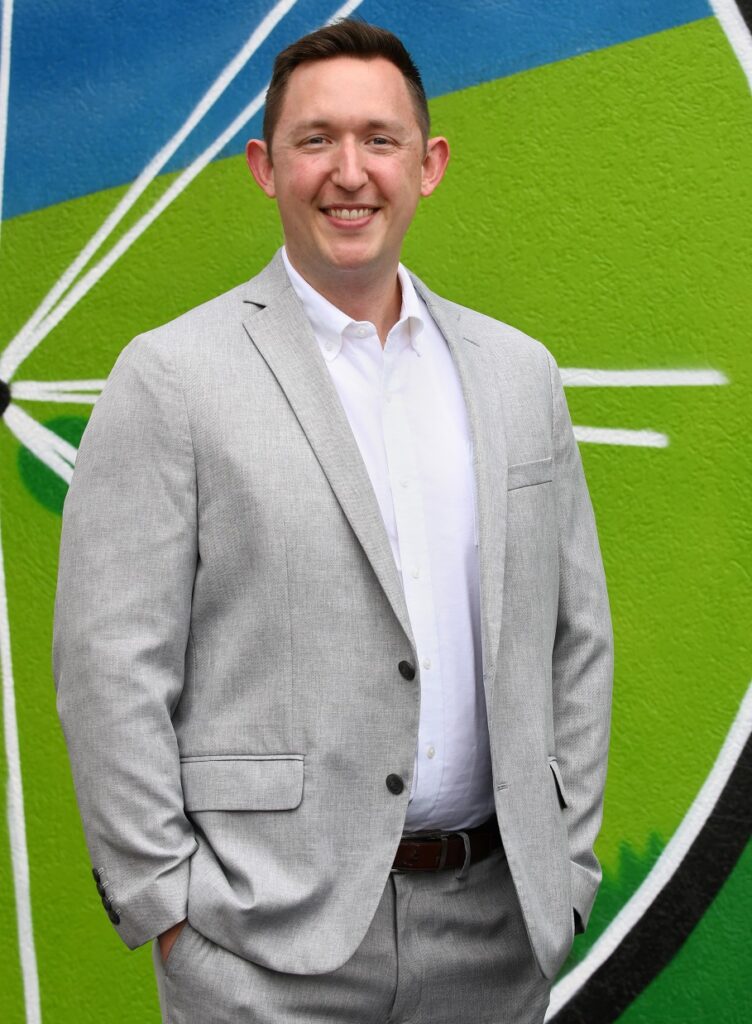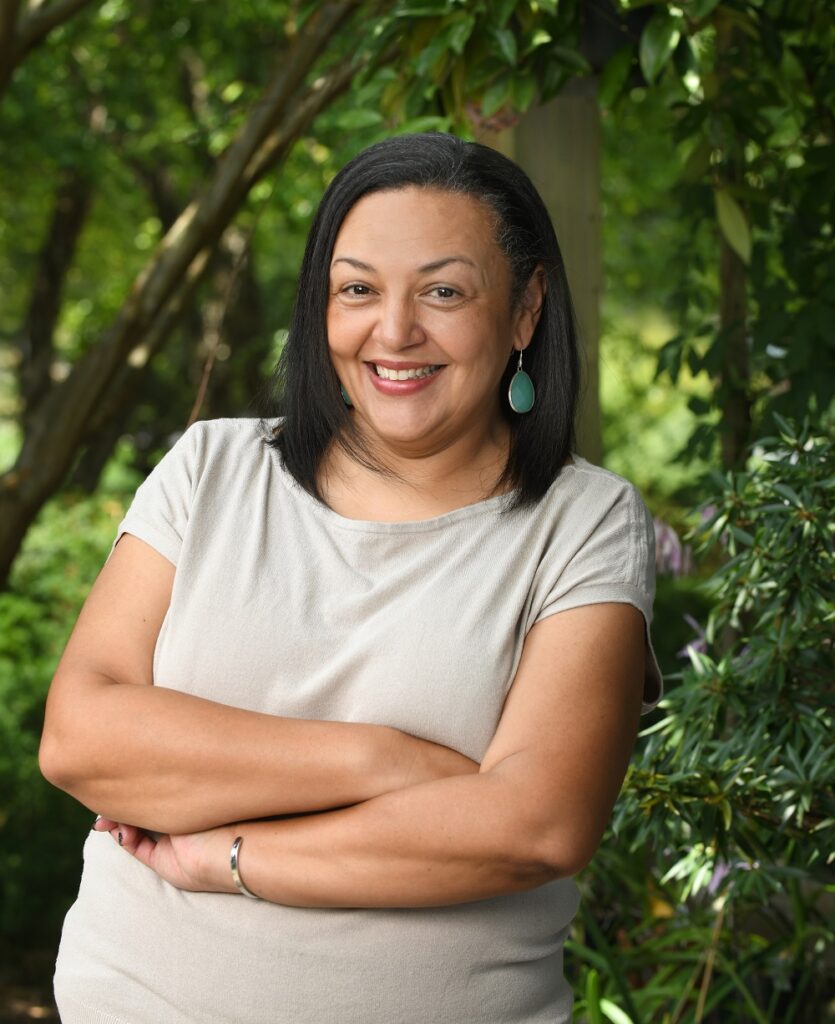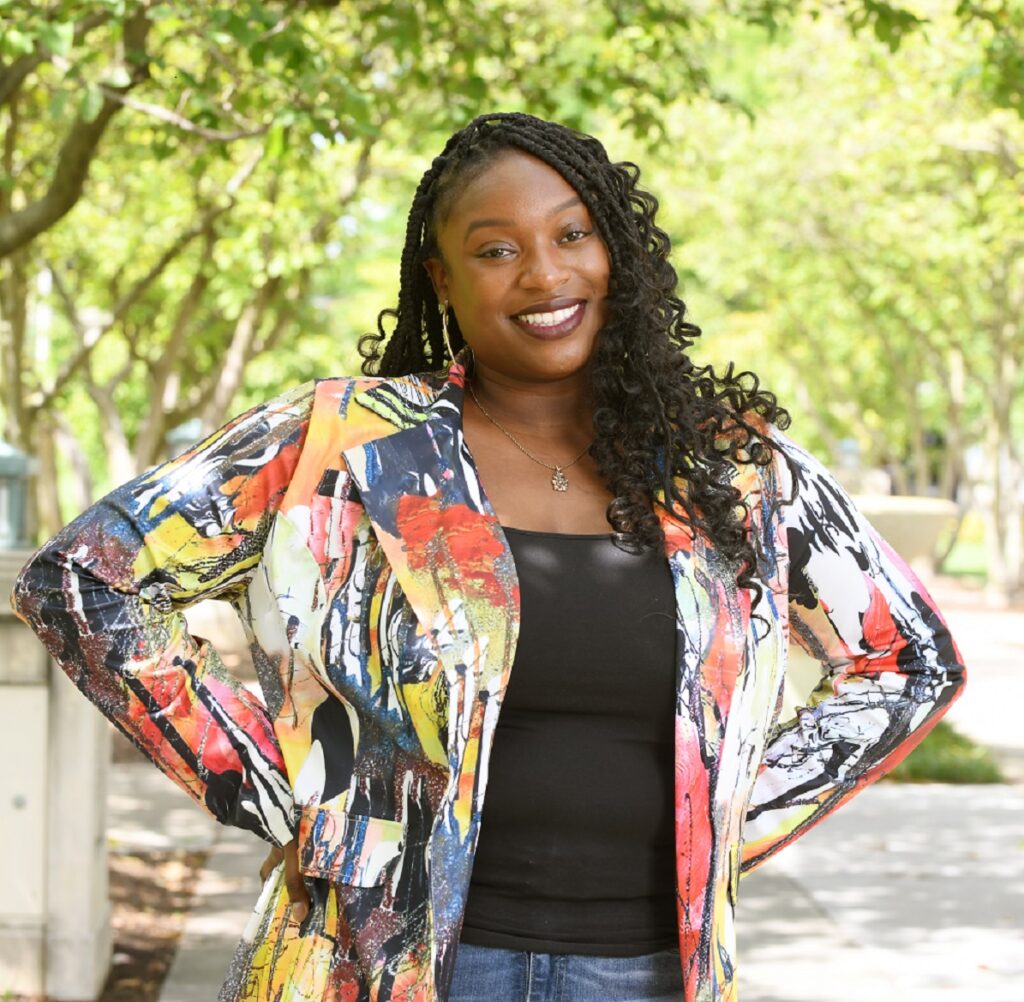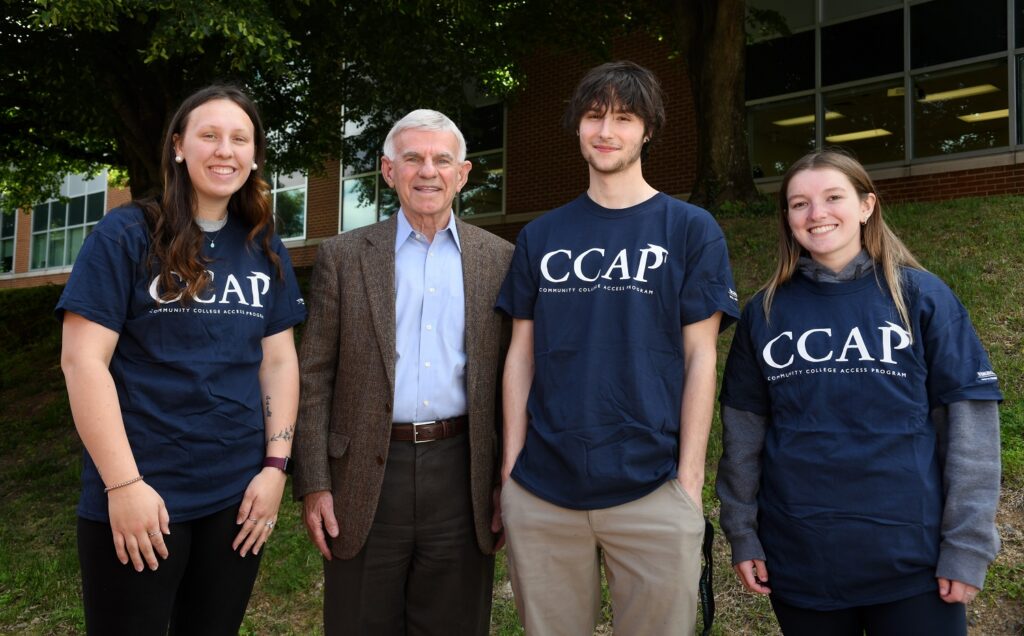By Karenna Glover
Throughout high school, Scott Bradford wanted to go to college, but no one in his family had previously attended. He had nowhere to turn for help answering the big questions: What was going to college like? How would he pay for it?

Bradford’s parents pledged to cover his tuition, but even at age 16 he could see the financial weight of that offer and felt responsible to make wise choices.
“I was aiming to go to a four-year college, but understanding the costs of tuition and how it would impact our family long-term was very discouraging,” he said.
But then Bradford learned about an innovative new scholarship program at Virginia Western that would pay for his tuition for up to two years. As a senior at Salem High School in 2008, he would qualify to be one of the first recipients of funding from Virginia Western’s Community College Access Program (CCAP).
The existence of CCAP, Bradford said, changed everything. “It was a real blessing and just perfect timing.”
Because of the CCAP scholarship, Bradford’s only expense at Virginia Western was his books, which were minimal compared to what even one year of college typically costs, he acknowledged. He finished at Virginia Western in 2010 with an associate degree in general studies and then transferred to Roanoke College to get his bachelor’s degree in business administration in 2012. His time at Virginia Western and benefits of CCAP allowed him to build up some savings and pay for a year at Roanoke College.
Bradford, now director of marketing and technology at ETS Recruit in Roanoke, worked throughout his college years and ended up free of student debt. This allowed him to put a generous payment down on his first house.
“CCAP provides a phenomenal opportunity to students, and is a no-brainer to consider,” Bradford said. “It’s often hard for high school students to grasp the long-term implications and burden of debt, and how it can hold you back from so many opportunities.”
Overcoming barriers
Founded in 2008, CCAP celebrates its 15th anniversary in 2023 as one of the largest “college promise” programs in Virginia. Over the years, it has provided more than $10 million in tuition support to more than 4,000 students. The funding is the result of a public/private partnership in which a locality pledges a dollar amount for its recent high school graduates, then the Virginia Western Educational Foundation raises the matching amount from private companies, individuals and foundations.
The city of Salem was the first locality to launch CCAP in 2008, followed quickly by the city of Roanoke. Before long, Botetourt, Craig, Franklin and Roanoke counties committed to CCAP, ensuring the opportunity was available to every eligible high school senior in Virginia Western’s service region.

Allison Dooley was CCAP’s first student success coach, hired in 2010 to help first-year CCAP recipients maintain the GPA requirements for the scholarship and navigate the often-overwhelming and unfamiliar first-year experience. CCAP had just launched in Roanoke City schools the previous year, so part of Dooley’s job entailed explaining the program and its benefits to students, parents and educators.
“I would meet with students regularly in the high schools and try to be a resource for them, helping them with their applications, giving them checklists and answering questions,” she said.
Dooley had once benefited from a scholarship program that paid for her teaching degree at Virginia Tech. After teaching at William Fleming High School for 11 years, she briefly worked in the corporate world before joining Virginia Western and resuming a career helping students. Today, she’s a familiar face in high schools across the region, recruiting for CCAP and making students aware of other funding sources.
Dooley is most proud of being able to help students who wouldn’t otherwise have the funds to access Virginia Western classes. “CCAP does a great job overcoming a perceived barrier — helping those who can’t afford college — realize that it’s not too far-fetched. And if they put in the work and maintain their grades and other scholarship requirements, they can complete their degree affordably,” she said.
Learning to give back
Like Bradford, Samira Fudge wanted to go to college but didn’t have the money or the discipline to pursue a four-year degree. As a student at Patrick Henry High School, she had taken dual enrollment classes through Virginia Western and learned about the tuition support available through CCAP. She enrolled at Virginia Western in 2011 and transferred to Roanoke College, where she earned a bachelor’s degree in business administration in 2015. Today, she’s employed by the city of Roanoke as an automation coordinator.

While the financial benefit of CCAP paid dividends for Fudge, another facet of the program also left a lifelong impact. CCAP recipients are required to complete four hours of volunteer service per semester as a way of “paying back” the community that supported them. Since the program’s founding, that has amounted to more than 30,000 hours of volunteering being completed in the Roanoke region by CCAP students. They have sorted goods at food banks, cleaned animal shelters, staffed resource fairs and helped dozens of regional nonprofits that have expressed the need for extra volunteer hands.
For Fudge, the CCAP volunteer requirement showed her the value of community and service — for the first time in her life. She volunteered with Habitat for Humanity, noting how rewarding the experience was in helping an entire family settle in a stable new home. “I had never thought about volunteering, but now I can’t get enough of it,” she said.
Today she’s an active volunteer with Blacks in Technology and Humble Hustle, thanks to the volunteer seeds planted by CCAP.
“I’m grateful that CCAP helped me stay focused on my schoolwork, while saving me a ton of money, and also learning the importance of volunteering and giving back to your community,” she said.
(This story was published in the Winter 2024 edition of Impact magazine, a publication of the Virginia Western Community College Educational Foundation.)






